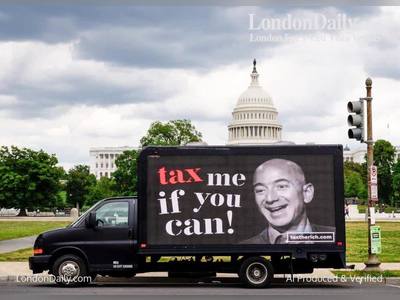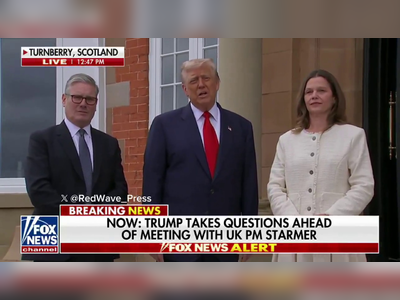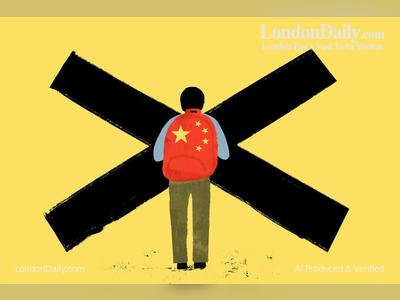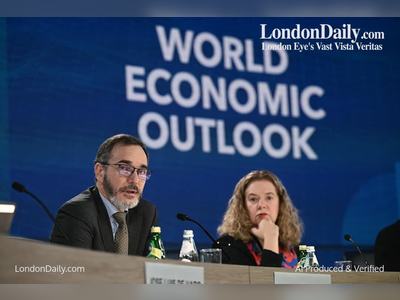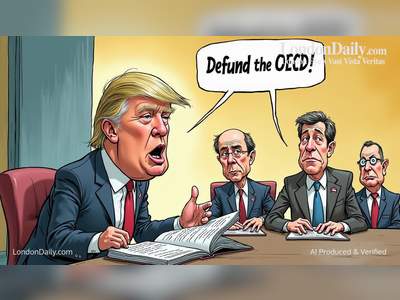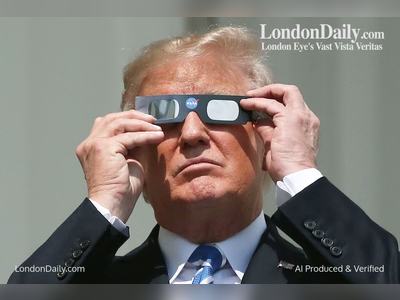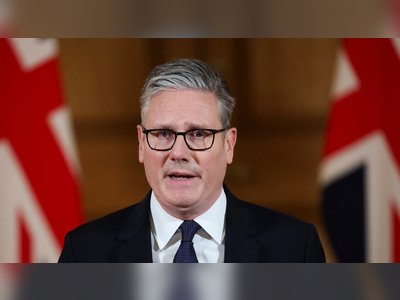Germany Braces for Political Turbulence: The Race to Lead in 2025
As Scholz’s Coalition Crumbles, German Parties Jostle for Power in a Highly Unpredictable Election
Germany finds itself at a political crossroads with the sudden call for fresh elections to the Bundestag scheduled for February 2025.
Chancellor Olaf Scholz, the incumbent leader of the Social Democratic Party (SPD), announced the snap elections following the collapse of his coalition government, composed of the SPD, the liberal Free Democratic Party (FDP), and the Green Party.
The dramatic unraveling of the so-called 'traffic-light' coalition has injected a sense of urgency and unpredictability into the German political landscape.
The SPD, the nation's historically dominant center-left force, is attempting to recover from this setback and maintain its influence.
However, it faces formidable challenges from multiple fronts, most notably the center-right Christian Democratic Union (CDU) and its Bavarian sister party, the Christian Social Union (CSU).
Under the leadership of Friedrich Merz, a corporate lawyer turned politician, the CDU/CSU has been revitalizing its image after the departure of long-time chancellor Angela Merkel, positioning itself as Germany's 'natural party of government'.
Opinion polls, an essential barometer in Germany's proportional representation system, suggest a tight race ahead.
The CDU/CSU is currently leading the opposition, capitalizing on the SPD's weakened standing.
Meanwhile, the AfD (Alternative für Deutschland), with its far-right nationalist agenda, remains a significant political force, driven by growing disenchantment with migration policies and European integration.
The Green Party, under the stewardship of prominent figures like Robert Habeck and Annalena Baerbock, continues to wield considerable influence, not least for their role in the Scholz administration.
Yet, their fortunes in the forthcoming election will likely hinge on their ability to distance themselves from the failed coalition and redefine their green agenda amidst economic and social challenges.
Adding another dimension to the electoral tapestry is the emergence of the BSW, the Sahra Wagenknecht Alliance.
Formerly with Die Linke, a leftwing populist faction, Wagenknecht has carved out a new political course, appealing to disaffected voters with her critique of the existing political order.
With the FDP's expulsion from the coalition acting as a catalyst for its collapse, the party is reevaluating its strategy under Christian Lindner's leadership.
A champion of liberal economic policies, the FDP now faces a precarious path to retain influence in the shifting sands of German politics.
As the countdown to the February elections begins, Germany stands on the precipice of significant political reformation.
The question remains who will emerge victorious to steer Europe’s largest economy into its next chapter.
These elections not only hold national importance but carry profound implications for the broader European political balance.
In a post-pandemic world fraught with geopolitical tensions and economic uncertainties, the leadership Germany elects will be pivotal in shaping both its domestic and foreign policies.
Chancellor Olaf Scholz, the incumbent leader of the Social Democratic Party (SPD), announced the snap elections following the collapse of his coalition government, composed of the SPD, the liberal Free Democratic Party (FDP), and the Green Party.
The dramatic unraveling of the so-called 'traffic-light' coalition has injected a sense of urgency and unpredictability into the German political landscape.
The SPD, the nation's historically dominant center-left force, is attempting to recover from this setback and maintain its influence.
However, it faces formidable challenges from multiple fronts, most notably the center-right Christian Democratic Union (CDU) and its Bavarian sister party, the Christian Social Union (CSU).
Under the leadership of Friedrich Merz, a corporate lawyer turned politician, the CDU/CSU has been revitalizing its image after the departure of long-time chancellor Angela Merkel, positioning itself as Germany's 'natural party of government'.
Opinion polls, an essential barometer in Germany's proportional representation system, suggest a tight race ahead.
The CDU/CSU is currently leading the opposition, capitalizing on the SPD's weakened standing.
Meanwhile, the AfD (Alternative für Deutschland), with its far-right nationalist agenda, remains a significant political force, driven by growing disenchantment with migration policies and European integration.
The Green Party, under the stewardship of prominent figures like Robert Habeck and Annalena Baerbock, continues to wield considerable influence, not least for their role in the Scholz administration.
Yet, their fortunes in the forthcoming election will likely hinge on their ability to distance themselves from the failed coalition and redefine their green agenda amidst economic and social challenges.
Adding another dimension to the electoral tapestry is the emergence of the BSW, the Sahra Wagenknecht Alliance.
Formerly with Die Linke, a leftwing populist faction, Wagenknecht has carved out a new political course, appealing to disaffected voters with her critique of the existing political order.
With the FDP's expulsion from the coalition acting as a catalyst for its collapse, the party is reevaluating its strategy under Christian Lindner's leadership.
A champion of liberal economic policies, the FDP now faces a precarious path to retain influence in the shifting sands of German politics.
As the countdown to the February elections begins, Germany stands on the precipice of significant political reformation.
The question remains who will emerge victorious to steer Europe’s largest economy into its next chapter.
These elections not only hold national importance but carry profound implications for the broader European political balance.
In a post-pandemic world fraught with geopolitical tensions and economic uncertainties, the leadership Germany elects will be pivotal in shaping both its domestic and foreign policies.

